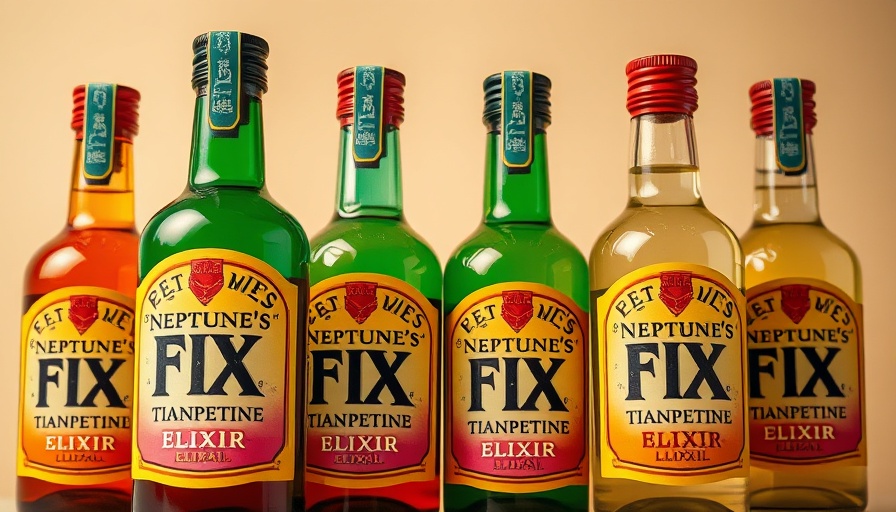
Understanding Gas Station Heroin: What You Need to Know
In recent years, a concerning trend has emerged in convenience stores and gas stations across the U.S., where products containing tianeptine, sometimes dubbed "gas station heroin," have become increasingly accessible. These brightly packaged products, marketed as energy boosters or cognitive enhancers, come with significant risks that should not be overlooked.
What is Tianeptine?
Tianeptine is a drug that has garnered attention for its potential benefits in treating depression in some countries. However, it has never been approved by the FDA for any medical use in the U.S. The drug is often promoted in forms such as flavored liquids or capsules under brand names like Zaza and TD Red, raising questions about the regulatory oversight of such products.
Despite its approved medical use abroad, the United States has clear restrictions regarding its sale in food and supplement forms. The FDA has been active in warning companies about the illegal marketing of tianeptine products linked to unsettling health issues.
The Rising Risks: Health Concerns and Misuse
Reports from U.S. poison control centers indicate a measured uptick in adverse cases related to tianeptine. A recent letter from the FDA emphasizes the dangers associated with these products and the growing prevalence of emergency cases stemming from their consumption. Users have reported severe side effects, including rapid heartbeats and seizures. In one concerning study conducted by health professionals in New Jersey, patients experienced such distress after consuming a particular elixir that almost all required hospitalization for intensive care.
Why Are People Using These Products?
Consumers are often drawn to products marketed with alluring claims of enhanced focus and mood improvement, despite the lack of scientific backing. With our fast-paced lives, the temptation for quick fixes can lead individuals to overlook the inherent risks associated with unverified supplements.
A Grey Market for Health Products?
The key issue revolves around the grey area of product regulation for dietary supplements in the U.S. While medications undergo rigorous testing and approval by the FDA, dietary supplements do not share the same strict oversight. This gap leaves consumers vulnerable to purchasing dangerous products without adequate warning or knowledge of their effects.
Navigating the Health Landscape: What Consumers Should Consider
For homeowners, renters, and community members across Central Florida, awareness is crucial. Understanding the risks associated with substances labeled as legal or natural can empower you to make informed health choices. It is advisable to consult with healthcare professionals before trying any new supplements, especially when their safety is not guaranteed.
Local Response and Community Education
The presence of unregulated products in the local market underscores the importance of community awareness initiatives. Health organizations, community leaders, and educational institutions can play a pivotal role in disseminating information about the potential dangers of widely available products like tianeptine. By promoting informed discussions, these groups can help reduce the allure of such risky alternatives.
Resources and Actions: What You Can Do
To protect yourself and your loved ones, consider the following steps:
- Stay Informed: Educate yourself about the supplements that you consider using. Look for trustworthy sources, such as healthcare providers or government health websites.
- Engage in Community Conversations: Join local health forums or workshops discussing wellness and safe practices.
- Report Concerns: If you encounter these products being sold inappropriately, report to local health authorities or the FDA.
As we navigate this evolving health landscape, keeping informed and vigilant is more important than ever.
Conclusion: Your Health Matters
The rise of unregulated tianeptine products highlights a significant issue regarding consumer safety in health and wellness sectors. By understanding the dangers associated with these substances and promoting an open dialogue in your community, you can help foster a healthier environment for all. Knowledge can be your most powerful tool in maintaining your well-being.
 Add Row
Add Row  Add
Add 






Write A Comment